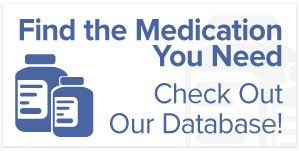According to the National Center for Learning Disabilities, approximately 1 in 5 children in the United States have ADHD.
Attention Deficit Hyperactive Disorder is a mental health condition that affects both adults and children. It causes individuals to find it difficult to concentrate and have trouble organizing their tasks. Additionally, it can make them impulsive. In saying that, it’s important to note that the symptoms can vary from person to person.
We recommend you consult a professional if you experience symptoms and enroll in prescription assistance programs for medication.
Here’s our guide to ADHD.
What Is ADHD?
Attention Deficit Hyperactive Disorder is a common mental health disorder that results in unusual impulsive behavior and hyperactivity in individuals. It is a chronic condition that impacts various aspects of a person’s life and can often make daily tasks difficult. It also affects an individual’s studies, work, interpersonal relationships, etc.
Individuals with ADHD are often inattentive and experience changes in their energy levels. As a result, it can lower their focus on a single task or prevent them from sitting still for longer periods.
The condition can develop as young as three years of age. Children with ADHD often have low self-esteem and poor social functioning. Adults with the condition also have self-esteem issues and often increasingly criticize themselves.
Symptoms of ADHD
Symptoms of ADHD can vary from individual to individual. In saying that, those diagnosed with ADHD showcase similar patterns of hyperactivity and inattentiveness. These symptoms also affect their daily life. Most individuals with ADHD have symptoms from both categories. However, that’s not always the case.
Symptoms of Inattentiveness:
- Avoiding tasks that require strenuous mental activity over longer periods.
- Getting easily distracted
- Forgetfulness in completing tasks
- Difficulties in organizing tasks
- Inattention to detail
- Trouble paying attention
- Trouble following instructions
Symptoms of Hyperactivity:
- Trouble sitting still
- Fidgeting
- Experiencing feelings of restlessness
- Speaking before a person has finished
- Talking excessively
- Interrupting conversations
- Difficulty in waiting their turn
Types of ADHD
The APA has grouped ADHD into three distinctive types. These include:
Predominantly Hyperactive-Impulsive Type
Individuals with this type of ADHD show hyperactive and impulsive behavior. This means that they can’t sit still, are unable to wait their turn, and interrupt conversations. Though people with this type aren’t predominantly inattentive, they can still have difficulty performing tasks.
Predominantly Inattentive Type
People with this type have difficulty concentrating, finishing tasks, and following instructions. Experts believe that individuals with this condition get diagnosed later. According to research, this type is more common in females than in males.
Combined Hyperactive-Impulsive and Inattentive Type
Individuals with this type showcase both inattentive and hyperactive/impulsive symptoms. It is the most common sub-type of ADHD. People with the combined type have selective traits from both categories.

ADHD medicines can be quite expensive. If you’re struggling to afford medicine, consider our services at The Rx Helper. We take pride in offering prescription assistance to Americans who can’t afford drugs. You can also enroll in our prescription assistance program to access affordable ADHD medicines.
Contact us now to learn more.
Disclaimer: This article is only intended for educational purposes and shouldn’t be used as a substitute for medical advice.



